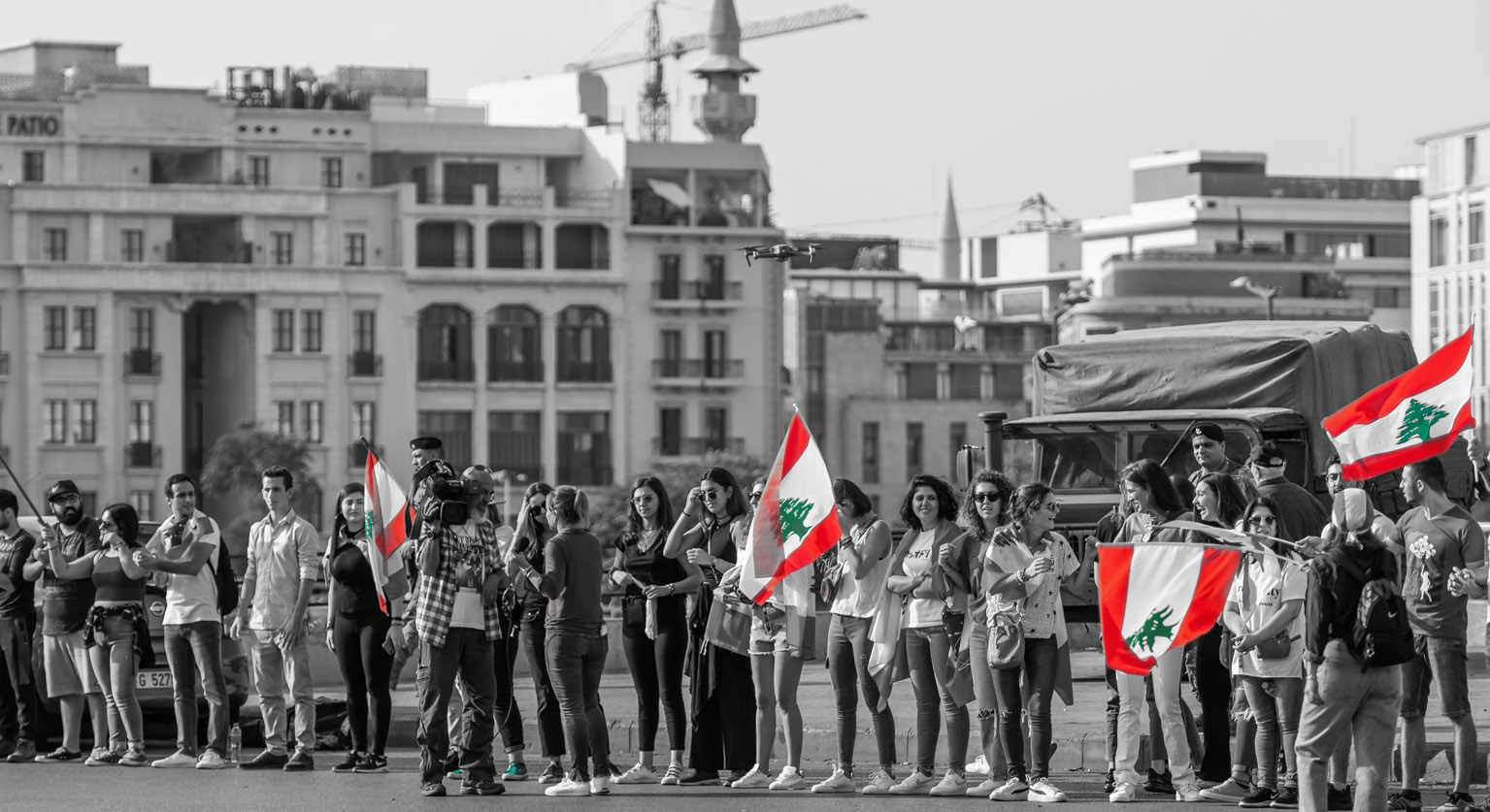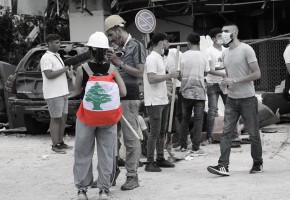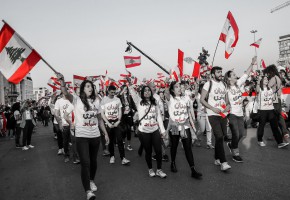
Lebanon's road to recovery - Ziad Abdel Samad
In 2020, Lebanon celebrated its first centenary,[i] 100 years after the declaration of the State of Greater Lebanon by the French Mandate on the steps of the Pine Palace, occupied by the High Commissioner, General Joseph-Eugène Gouraud at the time. The occasion was expected to be celebrated and accompanied by a constructive, more optimistic dialogue on the country's future. However, it did not go as the Lebanese desired.
The first centenary ended in an almost failed state, which has been crumbling for around a decade. The best indicators of failure could be attributed to the presidential vacuum, resulting in vacuums in various constitutional, administrative, and security institutions. The port explosion, which destroyed half of the capital in the summer of 2020,[ii] might be one of the most prominent indicators of the serious collapse in the functioning of political, administrative, judicial, security, and customs departments. However, the deepest crisis and perhaps the most dangerous repercussion facing the Lebanese remains the one witnessed by the economic, financial, and banking systems, which led to the evaporation of citizens’ funds and the reduction of public services to the minimum. Despite the severe living conditions more than four years into the crisis, those in charge did not even begin to propose relevant solutions.
Despite these crimes committed against the Lebanese, the judicial authorities, forming one of the basic pillars of state establishment, have failed to put an end to impunity. Thus, further violations were encouraged without restraint or deterrence, often in a blatant manner.
To overcome these existential crises, the people of Lebanon must unequivocally decide on choosing a state that stems from the "rule of law," limits the right to use force and defense, and formulates foreign relations through its institutions. This state must be based on a social contract that respects citizens' rights and duties and the separation and peaceful transfer of powers to enhance accountability mechanisms and end impunity.
Economically and socially, four issues must be considered when dealing with the future of Lebanon in its second centenary to preserve its differential advantages and its role in the region:
1. The first is that Lebanon was formed to play an intermediary role and be a message and link between East and West. Its geographical location, its beautiful nature, and its moderate climate meant that it was an intermediary in tourism, education, medicine, financial services, and the banking sector, among others. However, globalization, technological development, the digital economy, and the great transformations witnessed regionally in recent decades ended this role. The region's countries no longer needed a mediator. Lebanon’s future economic vision must be one that guarantees its continuity, excellence, and sustainable human development.
2. Secondly, the Lebanese economy was meant to be free. Paragraph F of the Lebanese Constitution's Preamble states that "the economic system is free and guarantees individual initiative and private ownership." Thus, several questions arise about the nature of the relationship between the state, public institutions, the private sector, and society. What does it mean for an economy to be free? What should the state do and what are the limits of its intervention in the economy?
The state must be capable of correcting distortions afflicting the free economy through fair competition and developing the public policies required to shift from a rentier to a competitive economy based on the export of goods and services. It should establish principles for distribution and redistribution to achieve the justice affirmed in Paragraph C of the Constitution's Introduction. The paragraph states that "Lebanon is a democratic, parliamentary republic, based on respect for public freedoms, mainly the freedom of opinion and belief, and on social justice and equality in rights and duties among all citizens without distinction or preference."
3. The third issue is bridging the relationship between justice and rights, on the one hand, and formulating public policies and legislation, on the other. A recent study on the Lebanese economy in the twentieth century showed that it was characterized by inequality and extreme concentration of wealth. This matter raises a number of challenges, such as the need to restore state institutions to guarantee a minimum level of democratic life, enhance accountability, and produce public policies that achieve some of the desired justice in opportunities and distribution, while respecting people’s rights.
4. The fourth point is that social justice is not a product of economic growth, contrary to what prevailed in the first hundred years, with the exception of the Chehabist era in the 1960s. There is a link between justice and macroeconomic choices. However, it is achieved through appropriate rights-based social policies, aiming to achieve justice and equality as stated in the Constitution and as stipulated in Lebanon’s international human rights and sustainable development obligations. Moreover, social policies must be built on the human rights approach and comprehensively encompass services and rights, their quality, and access for all citizens and residents.
These points emphasize the need to define a modern vision for Lebanon, its position, and its role. The nature of its economy must be reconsidered, from the current reliance on financial and real estate rents and services to the digital and knowledge economy. Thus, the policies and legal requirements to achieve and strengthen this goal should be prepared.
Ziad Abdel Samad
Reference:
i A program recently led by the Department of History and Archeology and the Faculty of Arts and Sciences at the American University of Beirut on the future of Lebanon in its bicentenary, which included the political and governance, security, cultural, economic, and social tracks.
iiThe State of Greater Lebanon was declared on September 1, 1920, and the famous port explosion occurred on August 4, 2020,a few days before the declaration's hundredth anniversary.
Recent publications

ANND Newsletter January 2026 - From Davos to the UPR: Between Promises, and Accountability
Related publications


